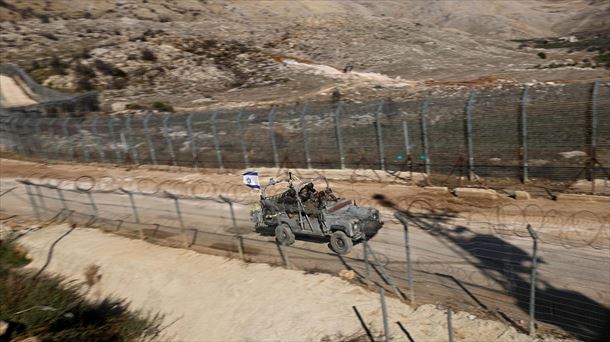The war accelerates applications for membership in Europe; even Scotland would ask to join if it became independent from the UK
From an undervalued organization, considered old even by opponents, to an object of desire. The Russian invasion of Ukraine has changed the perception of NATO. It has led to a feeling of insecurity. And that has led to historic changes unimaginable until recently, such as Finland and Sweden, which have committed themselves to neutrality for decades and have called for swift accession. This Tuesday the Prime Minister of Scotland also introduced that scenario as a future scenario. As very future even.
Nicola Sturgeon, argued that if the area gained independence from the United Kingdom, it would ask to be part not only of the European Union, but also of the Atlantic Alliance. “There is no doubt that the events of the past three months have reinforced my view that this position is without doubt the correct one, essential,” he added.
This revival of “popularity” towards an institution that does nothing is striking: last August, it was partly responsible for a hasty withdrawal from Afghanistan – the Joe Biden administration made the effective decision, without going any further. He had been in a country he wanted to democratize for two decades. And he didn’t get it. The Taliban took power and it was decided to give it up “to prevent renewed attacks and an open combat mission,” as the general secretary, Jens Stoltenberg, acknowledged at the time.
A complete failure. That also came when the beginning of a new era was announced with the replacement of Donald Trump in the White House months earlier. Because with the Republican leader came the most visible episodes of internal tensions; the blushing images that eventually burst the pompous strategic meetings of leaders. Think of the American’s push for a prime minister, the US’s reproach on Europe for slowing down, or the ridicule in a high-level group.
And of course Emmanuel Macron’s diagnosis in November 2019. Remember? NATO “is brain dead”. After those turbulences, the EU pursued strategic autonomy in security and defense – without severing ties, yes-. And while the process goes on, short-termism predominates. NATO is reborn.
And it is being pushed, thanks to Vladimir Putin. The autocrat gave among “his” reasons to justify Ukraine’s aggression (the war has been going on for 84 days), a “new war strategy” of the Alliance; that it was getting too close to its limits. And trying to stop it has achieved the opposite. It is true that NATO has clearly said ‘no’ to Kiev’s aspirations – which, frankly, were never going to be fulfilled. But Moscow has found two express adhesions that it did not expect. With the two Scandinavian countries, the Alliance is consolidating the flank of the Baltic Sea, which is in fact considered the weakest – only Finland ‘offers’ 1,300 kilometers of border with the Russian ‘enemy’.
An achievement that even NATO could not have dreamed of. In fact, until the outbreak of the conflict, only three partner countries had expressed the ambition to join the organisation: Ukraine itself, Bosnia and Herzegovina and Georgia. Article 10 of the founding treaty is at the root of this “open door policy” which now appears to be accelerating. It hasn’t always been this way. Since its founding year in 1949, NATO has grown from 12 to 30 countries through eight rounds of enlargement. The last to join their ranks was North Macedonia. It arrived on March 27, 2020.
Source: La Verdad
I am an experienced and passionate journalist with a strong track record in news website reporting. I specialize in technology coverage, breaking stories on the latest developments and trends from around the world. Working for Today Times Live has given me the opportunity to write thought-provoking pieces that have caught the attention of many readers.



